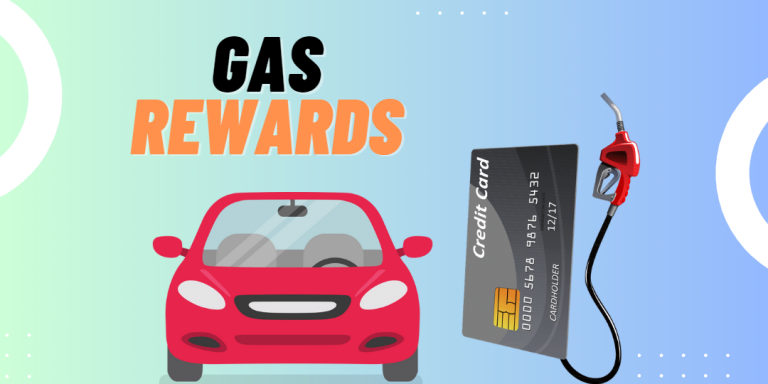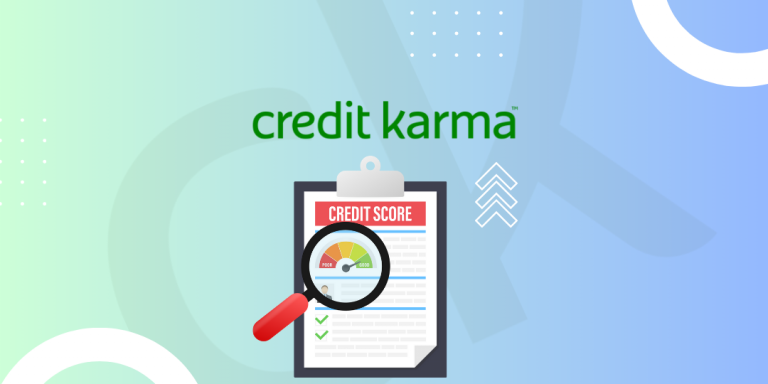Advertiser Disclosure: SuperOffers.com has partnered with various providers to offer a wide range of credit card products on our website. Both our website and our partners may receive commissions from card issuers. As part of an affiliate sales network, SuperOffers.com receives compensation for directing traffic to partner sites. This compensation may impact how and where links appear on this site. This site does not include all financial companies or all available financial offers.
Navigating the vast landscape of loans can often seem like a daunting task. Each choice carries the weight of potential financial stress, where a misstep could lead to burdensome expenses. This journey, however, need not be overwhelming. The right loan, selected after thorough consideration, can provide necessary financial support while minimizing costs and maximizing benefits. Conversely, a hasty decision could bind you to years of financial strain.
What We'll Cover

There are many types of loans available, each with different features, benefits, and drawbacks. In this article, we will focus on three common types of loans: personal loans, debt consolidation loans, and home improvement loans. We will explain what they are, how they work, and what they can be used for. We will also discuss the advantages and disadvantages of each type of loan, and provide some tips and examples on how to choose and apply for a loan online or offline.
By the end of this article, you will have a better understanding of loans and how to use them wisely. You will also learn how to compare and evaluate different loan offers and alternatives, and how to avoid common pitfalls and scams. Whether you need a loan for personal or professional reasons, this article will help you make an informed decision.
Personal Loans

Personal loans are loans that you can use for any purpose, such as buying a car, paying for a wedding, or taking a vacation. Personal loans are usually unsecured, which means you don’t have to provide any collateral or guarantee to get approved. However, this also means that personal loans tend to have higher interest rates and fees than secured loans, such as mortgages or car loans.
The advantages of personal loans are that they are flexible, convenient, and easy to obtain. You can borrow as much as you need, up to a specific limit, and choose a repayment term that suits your budget. You can also shop around for the best deal online or offline, and get the money in your account within days or even hours.
The disadvantages of personal loans are that they can be expensive, risky, and impact your credit score. If you borrow more than you can afford to repay, or if you miss any payments, you may end up in debt trouble and damage your credit rating. You may also face penalties and charges if you want to pay off your loan early or if you default on your loan.
Some tips and examples on how to choose and apply for a personal loan are:
- Compare interest rates, fees, terms, and features of different lenders online or offline. Use online tools such as loan calculators or comparison websites to find the best deal for your needs.
- Before applying for a loan, review your credit score and report. A good credit score might assist you in obtaining lower lending rates and better conditions. A low credit score might limit your alternatives and make it more difficult to obtain approval. One of the three major credit agencies, Equifax, Experian, or TransUnion, will provide you with a free copy of your credit report.
- Read the fine print and understand the terms and conditions of your loan agreement before you sign it. Make sure you know how much you have to pay each month when your payments are due, what happens if you miss a payment or want to pay off your loan early, and what fees apply.
- Make your payments on time and in full every month. This will help you avoid late fees, penalties, interest charges, and negative marks on your credit report. It will also help you build a good credit history and improve your credit score over time.
Debt Consolidation Loans

Debt consolidation loans are loans that allow you to pay off many obligations at once, such as credit cards, medical bills, or other loans. You may be able to cut your interest rate, simplify your payments, and save money over time by consolidating your debt into one loan.
The advantages of debt consolidation loans are that they can help you reduce your debt burden, improve your cash flow, and manage your finances better. You can pay off your high-interest debts faster, reduce the number of creditors you owe, and have one fixed monthly payment that fits your budget.
The disadvantages of debt consolidation loans are that they can extend your repayment period, increase your total cost of borrowing, and risk your collateral. If you choose a longer term to lower your monthly payment, you may end up paying more interest over the life of the loan. If you use a secured loan, such as a home equity loan or a car title loan, to consolidate your debt, you may lose your property if you default.
Some tips and examples on how to compare and evaluate different debt consolidation loan offers and alternatives are:
- Compare the interest rate, fees, terms, and features of different lenders online or offline. Use online tools such as debt consolidation calculators or comparison websites to find the best deal for your situation.
- Before you apply for a loan, determine your debt-to-income ratio. This is the portion of your monthly income that goes toward debt repayment. A smaller ratio indicates that you have more money to spend on other things. A greater percentage indicates that you have less money left over for other expenses. Keep your ratio below 36% as a general guideline.
- Consider other options besides debt consolidation loans, such as debt management plans, debt settlement programs, or bankruptcy. These options may have different pros and cons depending on your circumstances. Consult a reputable credit counselor or financial advisor before making any decision.
Home Improvement Loans

Home improvement loans are loans that you can use to finance renovations, repairs, or upgrades to your home. They can help you increase the value and comfort of your property, and may also qualify for tax deductions or rebates.
There are different types of home improvement loans available, such as personal loans, home equity loans, home equity lines of credit (HELOCs), government-backed loans (such as FHA 203k loans or VA renovation loans), or contractor financing.
The advantages of home improvement loans are that they can help you enhance your living space, boost your home’s resale value, and save money on energy bills. You can choose from various projects, such as remodeling your kitchen or bathroom, adding a deck or patio, installing solar panels or windows, or fixing structural issues.
The disadvantages of home improvement loans are that they can require equity, collateral, or a good credit score. If you use a secured loan, such as a home equity loan or a HELOC, to finance your home improvement project, you may risk losing your home if you fail to repay the loan. If you use an unsecured loan, such as a personal loan or a contractor financing option, you may face higher interest rates and fees than secured loans.
Some tips and examples on how to select and apply for a home improvement loan online or offline are:
- Compare the interest rate, fees, terms, features, and requirements of different lenders online or offline. Use online tools such as home improvement calculators or comparison websites to find the best deal for your project.
- Check your home’s equity before you apply for a loan. This is the difference between the market value of your home and the amount you owe on it. The more equity you have in your home, the more money you can borrow against it. The less equity you have in your home, the less money you can borrow against it.
- Read the fine print and understand the terms and conditions of your loan agreement before you sign it. Make sure you know how much money you can borrow, how long it will take to repay it, what happens if you miss a payment or want to pay off your loan early, and what fees apply.
- Plan and budget wisely for your home improvement project. Estimate how much it will cost to complete the project, including materials \, labor, permits, taxes, etc. Set aside some money for contingencies or unexpected expenses. Track your spending and stick to your budget.
Conclusion
Loans are a type of credit that involves borrowing money and repaying it with interest over time. Loans can help you finance large purchases, cover unexpected expenses, or invest in education or business. However, loans also come with risks and responsibilities, so you need to understand how they work and the cost before applying for one.
In this article, we have discussed three common types of loans: personal loans, debt consolidation loans, and home improvement loans. We have explained what they are, how they work, and what they can be used for. We have also discussed the advantages and disadvantages of each type of loan and provided some tips and examples on how to choose and apply for a loan online or offline.
We hope this article has helped you gain a better understanding of loans and how to use them wisely. You should now be able to compare and evaluate different loan offers and alternatives and avoid common pitfalls and scams. Whether you need a loan for personal or professional reasons, this article should help you make an informed decision.
However, this article is not intended to be a substitute for professional financial advice. You should always consult a qualified financial advisor before taking out any loan or making any financial decision. Remember that loans are a serious commitment and should be handled with care.
If you have any questions or comments about this article, please feel free to contact us. We would love to hear from you and help you with your loan needs. Thank you for reading and happy borrowing!
To find all the details about the terms and conditions of an offer, check the online credit card application. We put a lot of effort to present you accurate and up-to-date information; however, we do not guarantee the accuracy of all credit card information presented.
Editorial Disclosure: All reviews/opinions expressed here are author's alone, and have not been reviewed, approved, or otherwise endorsed by any advertiser included within our content. The information presented on this page is accurate as of the posting date; however, some of the offers mentioned below may have expired. Check the issuer's website for the most recent information.
Advertiser Disclosure: SuperOffers.com has partnered with various providers to offer a wide range of credit card products on our website. Both our website and our partners may receive commissions from card issuers. As part of an affiliate sales network, SuperOffers.com receives compensation for directing traffic to partner sites. This compensation may impact how and where links appear on this site. This site does not include all financial companies or all available financial offers.
The responses below are not provided, commissioned, reviewed, approved, or otherwise endorsed by any financial entity or advertiser. It is not the advertiser’s responsibility to ensure all posts and/or questions are answered.





